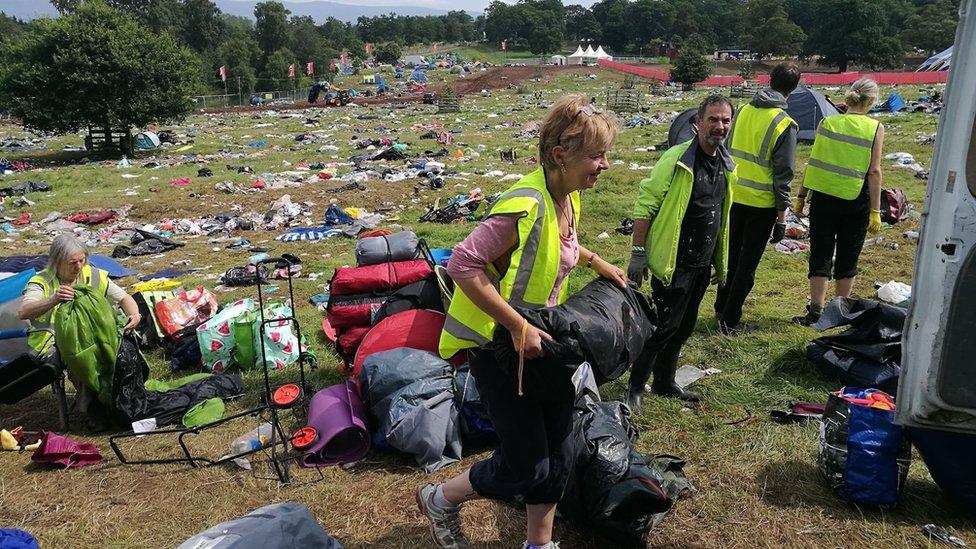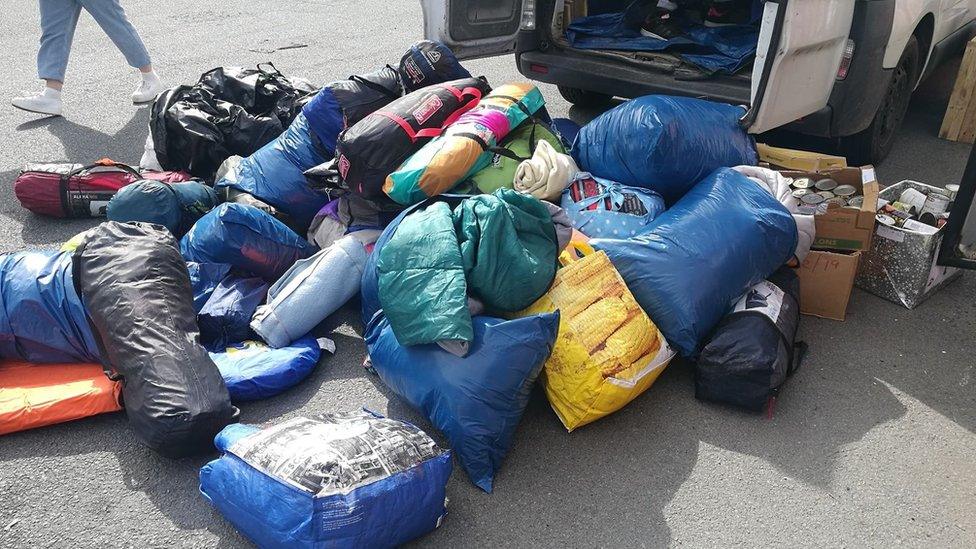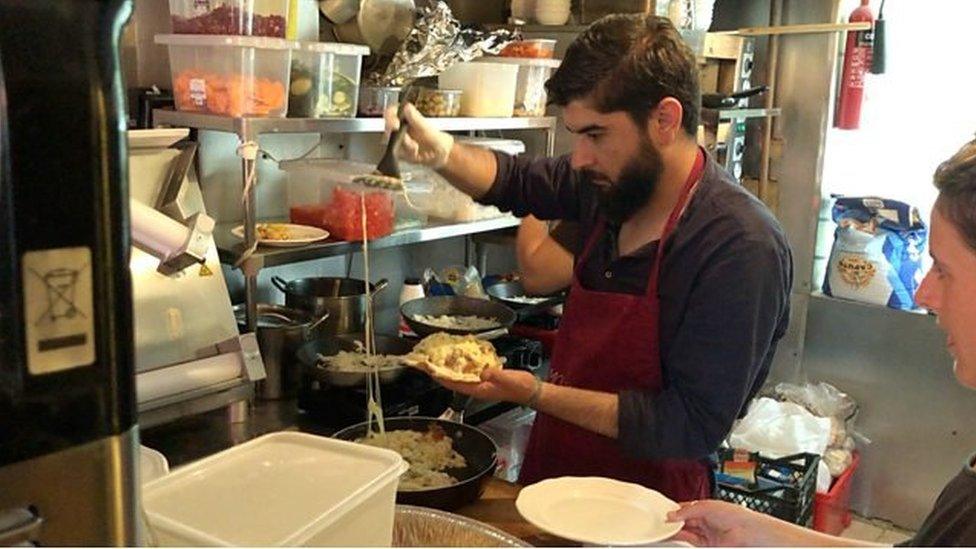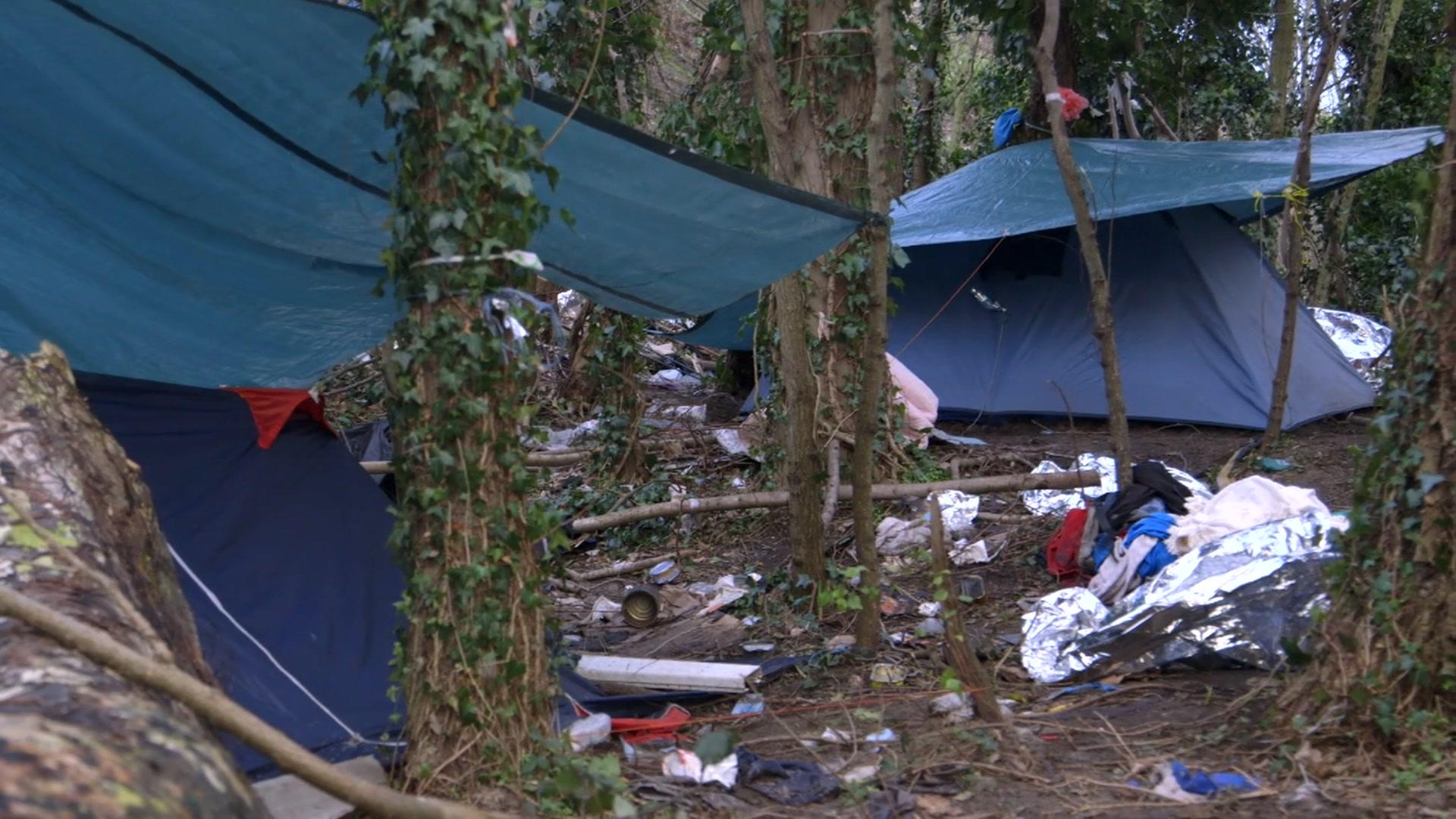Kendal Calling festival tents given to Calais migrants
- Published

Revellers left their tents scatted across the festival fields
Hundreds of tents left behind at a Cumbrian music festival have been given to migrants in France.
Carlisle Refugee Action Group collected the unwanted items after Kendal Calling and volunteers travelled to Calais and Dunkirk to distribute them.
The organisation's James Cartwright said it was "great" they were not going to be thrown away.
About 30,000 people attended the four-day event at Lowther Deer Park, Penrith, at the end of July.
"Fortunately the weather means this isn't the worst time of year [for those in the camps]," Mr Cartwright said.
"People were telling me that during the heatwave a couple of weeks ago it was very, very challenging. It was a struggle just to make sure people got water.
"It's still incredibly stressful for men, women and a lot of children we saw in the camp.
"It's great knowing all that equipment is going to be helpful. The charities in France are starting to stockpile things for winter already. It's great it's not going to landfill.
There are migrant camps near the ports at Calais and Dunkirk with many people originally from the Middle East hoping to travel to the UK to seek asylum.

Volunteers bagged up the tents and took them away in vans
Mr Cartwright and his fellow volunteers returned from Calais on Wednesday.
The Carlisle Refugee Action Group also collects unwanted tents from other festivals including Glastonbury and Cumbria's Solfest.
Speaking to BBC Cumbria, he added: "To be honest, its shocking there was that much waste left behind [at Kendal Calling].
"This year at Glastonbury people took their things home, which is brilliant news for the planet but it was a shock when all of a sudden their was one-fifth of what people normally manage to salvage at the end of the festival."
A note on terminology: The BBC uses the term migrant to refer to all people on the move who have yet to complete the legal process of claiming asylum. This group includes people fleeing war-torn countries, who are likely to be granted refugee status, as well as people who are seeking jobs and better lives, who governments are likely to rule are economic migrants.
- Published22 July 2019

- Published9 January 2018
